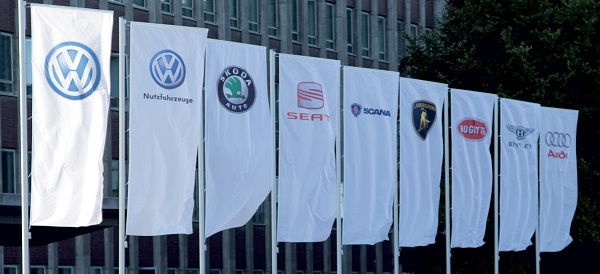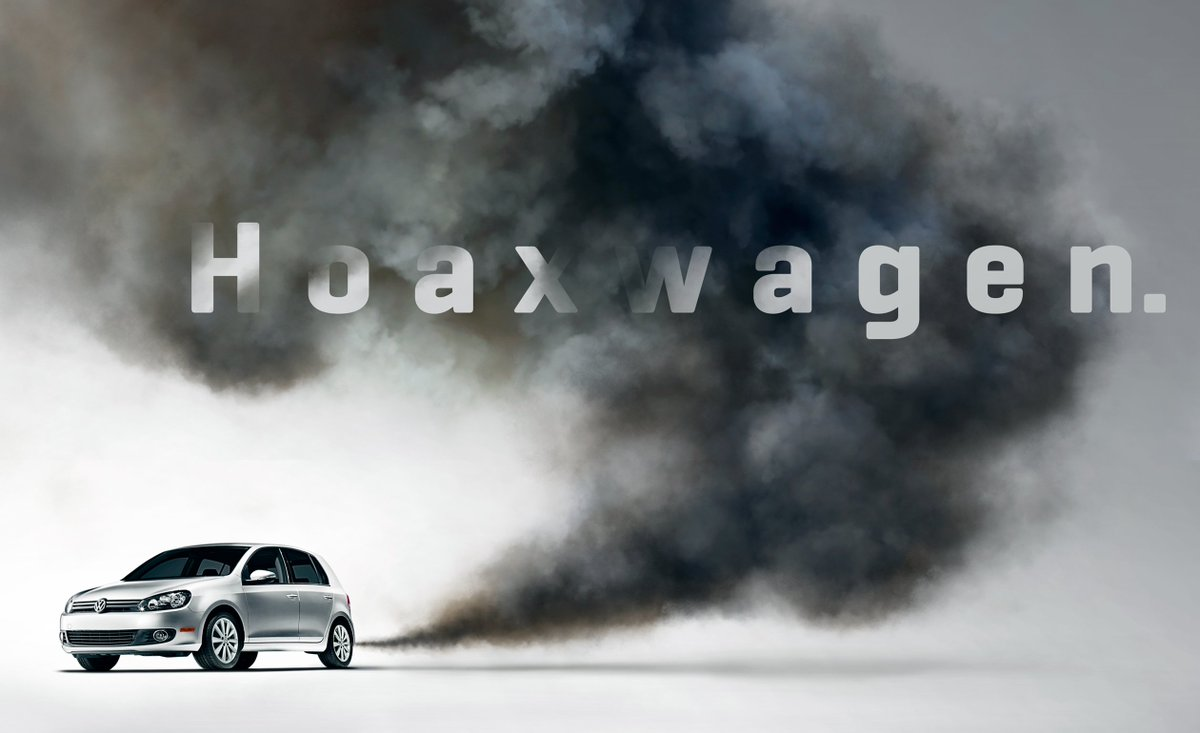A public relations disaster? This car company shows you how to address it the right way! [Monday Marketing Marvels]

How do you bounce back after experiencing a setback?
Do you…
…sulk in one corner and shut yourself out from the rest of the world?
…just move forward as if nothing happened?
…get up, take a deep breath, address the issue at hand, and aim for success?
This automotive company had its fair share of setbacks, too. Its 2015 scandal was a PR nightmare that had investors panicking.
What’s worth looking into is how management’s response showed that there’s nowhere for the company to go but up!

Volkswagen AG, also known as Volkswagen Group, is a German multinational automotive manufacturing company headquartered in Wolfsburg, Germany.
The Group operates in 125 production plants and comprises 12 other automotive brands in seven European countries, namely:
- Volkswagen Passenger Cars
- SEAT
- Audi
- SKODA
- Bentley
- Bugatti
- Lamborghini
- Porsche
- Ducati
- Volkswagen Commercial Vehicles
- Scania
- MAN
Volkswagen was considered as the world’s biggest car marque after it overtook Toyota in a global report in early 2015.
However, in September of that same year, the company suffered financial backlashes due to its emissions scandal.

The scandal was put in the spotlight when Volkswagen received a notice of violation from the US Environmental Protection Agency.
The EPA alleged that the company sold over 480,000 Volkswagen and Audi vehicles with an emissions compliance “defeat device” to bypass environmental regulations.
According to EPA’s notice, the defeat device caused the vehicles to emit up to 40 times more nitrogen oxides than permitted by the environmental standards.
The 480,000 vehicles were from Volkswagen’s US market alone!
Later on, Volkswagen admitted that over 11 million of its diesel vehicles worldwide were involved in the emissions scandal.
This resulted in the company’s share prices immediately falling by 20% on the Frankfurt Stock Exchange. In November 2015, Volkswagen also reported sales declines in its UK, Germany, and US market.
Bouncing back from the emissions scandal
Five years after the scandal was uncovered, Volkswagen is still putting in its best efforts to transform the company and gain back the trust of its market.
In order to get through the public relations nightmare, the company embarked on a four-step process:
Replace the leadership.
Just weeks after the US EPA’s notice of violation was given to Volkswagen, Martin Winterkorn stepped down from his post as CEO of the company. He was replaced by Matthias Muller, the former CEO of automotive brand Porsche.
Muller didn’t waste any time moving forward and replaced 7 out of 10 Volkswagen executives.
He also cut off over 30,000 jobs (through attrition and phased retirements) to slash company costs.
This served as Volkswagen’s foundation towards the second step of its recovery process.
Restructure the organization.
According to Muller, the goal of the restructuring was to redefine Volkswagen’s focus and simplify the leadership organization.
This would enable the company to make more efficient, timely, and smarter decisions.
Muller also cut the compensation of his remaining senior executives by 37% to change the public’s perception that Volkswagen had been overpaying its executives and prioritizing compensation over shareholder benefits.
Redevelop the strategy.
One of Muller’s priorities in the third step of Volkswagen’s recovery process was to raise the profitability of the car brand.
With the help of the Volkswagen brand’s Board of Management Chairman, Dr. Herbert Diess, Muller launched a new strategy called “Transform 2025,” which was designed as a three-phased strategy.
The first phase, which took place from 2016 to 2020, focused on the complete overhaul of Volkswagen’s current value chain.
It was also in this phase that the company began developing new competencies in electric vehicles, e-mobility, and connectivity.
The second phase, which will be implemented from 2020 to 2025, will see Volkswagen push forward with a goal to become one of the world’s leading and profitable automotive manufacturers.
The third phase, which will begin in 2025, aims to leverage Volkswagen’s new competencies into a global role amidst the growing world of electric vehicles and e-mobility.
- Rebrand the product.Volkswagen has ushered into a “new era” for its vehicles with its “no filter” brand―new logo, new brand design, and a female voice.
According to Jochen Sengpiehl, Chief Marketing Officer of Volkswagen, the company’s new logo and brand design vows to “not show a perfect advertising world.”
Volkswagen now has bolder and more colorful visuals, as well as a sound logo that will be used across all its communication channels.
The new logo has been simplified to a two-dimensional format for easier digital formatting and is now rolled out across 171 markets across the globe.
The company has also started using a female voice to present its vehicles at trade shows and advertisements in order to show a “warm, pleasant, and confident voice” across its markets.
In 2019, Volkswagen launched its full-electric car, the ID.301, at the IAA Frankfurt International Motor Show to highlight its move to an “electric, fully connected, and has neutral carbon balance” future for the automotive industry.
Volkswagen’s efforts to rebuild their reputation seemed to work. Despite a rough 2015, the company managed to work its way up in the latter half of 2016.
As cited in an article from Emerald Insight’s Journal of Business Strategy, for the whole 2016, Volkswagen sold a total of 10.31 million cars and trucks, a 3.8% increase from 2015’s 9.93 million sales.
In 2018, according to market research company YouGov’s BrandIndex, Volkswagen also managed to increase its UK market share to 8.42%, slightly higher than the 8.21% it had in 2017.
In the past five years, Volkswagen AG has recorded a revenue of:
- EUR 213.3 billion in 2015
- EUR 217.3 billion in 2016
- EUR 229.6 billion in 2017
- EUR 235.8 billion in 2018
- EUR 252.6 billion in 2019
Clearly, the steps undertaken by Volkswagen enabled it to move past the scandal and redeem its positive reputation as an automotive company.
Volkswagen AG’s Earning Power: Valens Research vs. As-reported numbers
Volkswagen AG makes for a great case study that we come back to regularly. One great reason?
The company has proven itself to be a better earning power generator than investors might think.
So, how well has Volkswagen AG been growing its business in the past years?
The research doesn’t lie—nor do the results. Earning power (the blue bars) continues to show results higher on average than what traditional databases show.

The blue bars in the chart above represent Volkswagen AG’s earning power (Uniform Return On Assets). Volkswagen AG has shown volatile profitability, generally below corporate average profitability, in part due to the highly competitive market in which they operate, and more recently due to costs related to the emissions scandal. Uniform ROA expanded from 1% in 2004 to historical peaks of 6% in 2014, and slightly declined to 5% in 2019.
While Volkswagen AG’s Uniform ROAs are in line with global corporate averages, Its as-reported ROA would tell a different story.
The orange bars are the company’s as-reported financial information. If you relied on these numbers, Volkswagen AG’s profitability is understated, recording only 3% as-reported ROA (return on assets, a measure of earning power) for 2019, which is lesser than 5% Uniform ROA.
That’s what you’ll see in Yahoo Finance, Google Finance, and most other databases.
The company’s stock price also performed better than the rest of the stock market over the decade, which we can see in the blue line in the chart below. Its returns have been well above the market.

The numbers show that it has been doing well and making a profit.
Recovering in a short span of time from a huge-scale PR and corporate scandal is not an easy task.
However, Volkswagen AG’s proactive approach to settling the legal issues and the revamping of its marketing and company strategies have yielded positive results.
With its current move towards electric vehicles, Volkswagen AG undergoes a “fundamental transformation towards a future with a neutral emission balance for everyone.”
As stated by Jurgen Stackmann, a member of the Board of Management, now is the right time for Volkswagen’s new forward-looking attitude to be visible to the world.
About The Dynamic Marketing Communiqué’s
“Monday Marketing Marvels”
Too often, industry experts and the marketing press sing the praises of some company’s marketing strategy.
…Only for the audience to later find out that their product was a flop, or worse, that the company went bankrupt.
The true ROI in marketing can’t be separated from the business as a whole.
What good is a marketing case study if one can’t prove that the company’s efforts actually paid off?
At the end of the day, either the entire business is successful or it isn’t. And the role of marketing is always paramount to that success.
Every Monday, we publish a case study that highlights the world’s greatest marketing strategies.
However, the difference between our case studies and the numerous ones out there, is that we will always make certain that the firm really did generate and demonstrate earning power worthy of study in the first place (compliments of Valens Research’s finance group).
By looking at the true earnings of a company, we can now rely on those successful businesses to get tips and insights on what they did right.
We’ll also study the greatest marketing fails and analyze what they did wrong, or what they needed to improve on. We all make our mistakes, but better we learn from others’ mistakes—and earlier, rather than later.
Hope you found this week’s marketing marvel interesting and helpful.
Stay tuned for next week’s Monday Marketing Marvels!
Cheers,
Kyle Yu
Head of Marketing
Valens Dynamic Marketing Capabilities
Powered by Valens Research
www.valens-research.com






